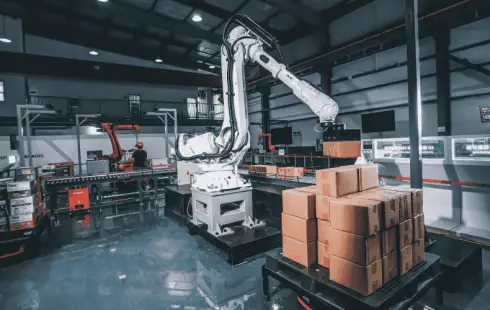
Crypto Investment Entry and Exit Strategies of Institutional Investors
Section: Business
 German industry received fewer orders in April for the third month in a row due to uncertainty caused by the war in Ukraine and weaker demand from China. New business shrank by 2.7 percent compared with the previous month, the Federal Statistical Office reported on Tuesday.
German industry received fewer orders in April for the third month in a row due to uncertainty caused by the war in Ukraine and weaker demand from China. New business shrank by 2.7 percent compared with the previous month, the Federal Statistical Office reported on Tuesday.
This comes as a surprise: experts polled by Reuters news agency had expected a small growth of 0.3 percent. In March, there had been a slump of 4.2 percent, in February a minus of 1.3 percent. "Increased uncertainty due to the Russian invasion of Ukraine continues to lead to weak demand, especially from abroad," the Federal Ministry of Economics said.
Commerzbank economist Ralph Solveen cited other reasons that "the orders boom is over." For example, demand in China has weakened significantly due to repeated lockdowns in the wake of the government's zero-Covid policy, the economist said, referring to Germany's most important trading partner. "Another reason is likely to be supply bottlenecks for many goods, which is why companies are ordering less of other inputs."
The Association of German Chambers of Industry and Commerce (DIHK) sees great uncertainty in the economy. "A cooling global economy, ongoing supply chain problems and rising prices are dampening demand for industrial goods, especially from customers abroad," said DIHK economic expert Jupp Zenzen. High energy and raw material prices also led to a reluctance to place orders.
Orders from abroad fell by 4.0 percent in April. New business outside the euro zone fell by 3.0 percent, and that from the monetary union by as much as 5.6 percent. Domestic orders also fell, by 0.9 percent. Demand was particularly weak for capital goods such as machinery, vehicles and equipment, as corporate customers are currently holding back on major spending: Here, demand slumped by a total of 4.3 percent. "Overall, the outlook for the industrial economy in the coming months is subdued," the Ministry of Economics wrote.
However, the industry is not currently lacking in orders, but in preliminary products such as computer chips. "Companies continue to have well-filled order books," the ministry therefore stressed, adding that 77.2 percent of companies are currently complaining about bottlenecks or problems in the procurement of intermediate products and raw materials, according to the Munich-based Ifo Institute's monthly business survey. "Supply chains are under constant stress," said Ifo survey director Klaus Wohlrabe. "The closure of ports in China has further worsened the situation for many companies."
Photo by Mech Mind

Section: Business

Section: Arts

Section: Arts

Section: Business

Section: Business

Section: Arts

Section: Health

Section: Arts

Section: News

Section: News
Health Insurance in Germany is compulsory and sometimes complicated, not to mention expensive. As an expat, you are required to navigate this landscape within weeks of arriving, so check our FAQ on PKV. For our guide on resources and access to agents who can give you a competitive quote, try our PKV Cost comparison tool.
Germany is famous for its medical expertise and extensive number of hospitals and clinics. See this comprehensive directory of hospitals and clinics across the country, complete with links to their websites, addresses, contact info, and specializations/services.
One of the most beautiful squares transforms into a summer stage every year for two days. The Gärtnerplatz Open-Air features a free music and cultural program across three stages, as well as street food from local vendors. On Saturday, the main stage at Gärtnerplatz offers something for everyone,...



No comments yet. Be the first to comment!